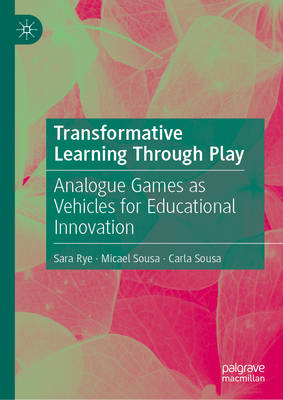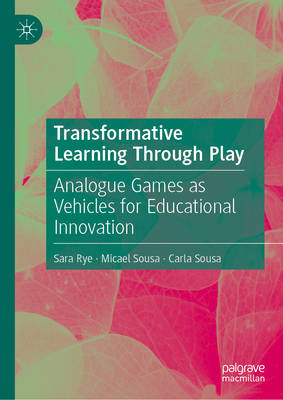
- Afhalen na 1 uur in een winkel met voorraad
- Gratis thuislevering in België vanaf € 30
- Ruim aanbod met 7 miljoen producten
- Afhalen na 1 uur in een winkel met voorraad
- Gratis thuislevering in België vanaf € 30
- Ruim aanbod met 7 miljoen producten
Transformative Learning Through Play
Analogue Games as Vehicles for Educational Innovation
Sara Rye, Micael Sousa, Carla SousaOmschrijving
This book explores analogue game-based learning in the context of the Anthropocene, addressing an urgent need for educational approaches beyond traditional scholastic boundaries. In the context of a complex world, the book emphasises the inadequacies of current educational methods and the potential of game-based learning to foster collective problem-solving skills. It then traces the historical roots of analogue and tangible games, highlighting their potential and challenges in alignment with several learning theories. The authors explore the psychology of analogue game-based learning, exploring its impact on cognition, motivation and, potentially, skill transfer to real life situations. They focus strongly on designing effective learning games, emphasising principles of game design, the TEGA initiative and common pitfalls to avoid. Ultimately, the book emphasises the importance of inclusivity in game-based learning, addressing barriers, intersectionality, and accessible design features both for commercial and educational games, and highlighting the ethical and pedagogical significance of fostering diverse and inclusive learning environments. The book will be of interest to researchers and students of education-related topics, particularly instructional design, pedagogical, and psychology, as well as enthusiasts from game studies and related practitioners.
Specificaties
Betrokkenen
- Auteur(s):
- Uitgeverij:
Inhoud
- Aantal bladzijden:
- 206
- Taal:
- Engels
Eigenschappen
- Productcode (EAN):
- 9783031785221
- Verschijningsdatum:
- 18/02/2025
- Uitvoering:
- Hardcover
- Formaat:
- Genaaid
- Afmetingen:
- 148 mm x 210 mm

Alleen bij Standaard Boekhandel
Beoordelingen
We publiceren alleen reviews die voldoen aan de voorwaarden voor reviews. Bekijk onze voorwaarden voor reviews.











